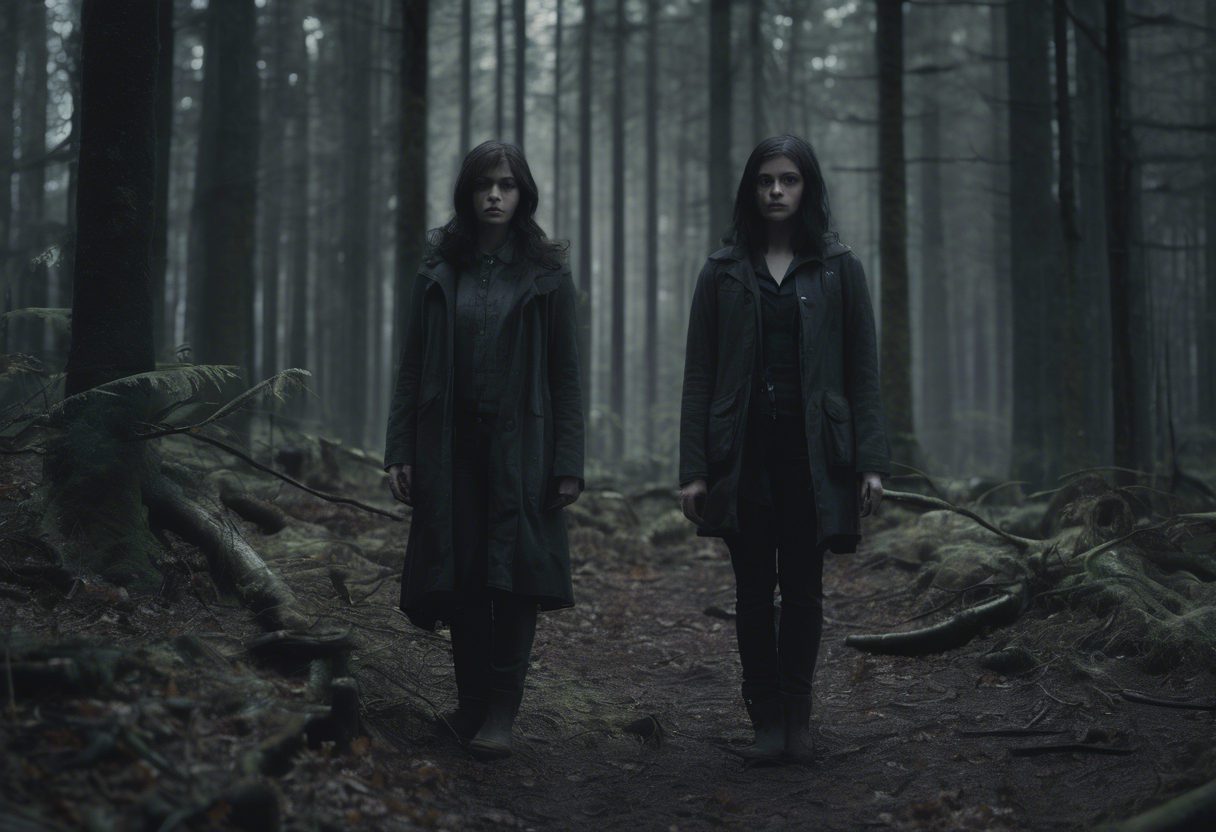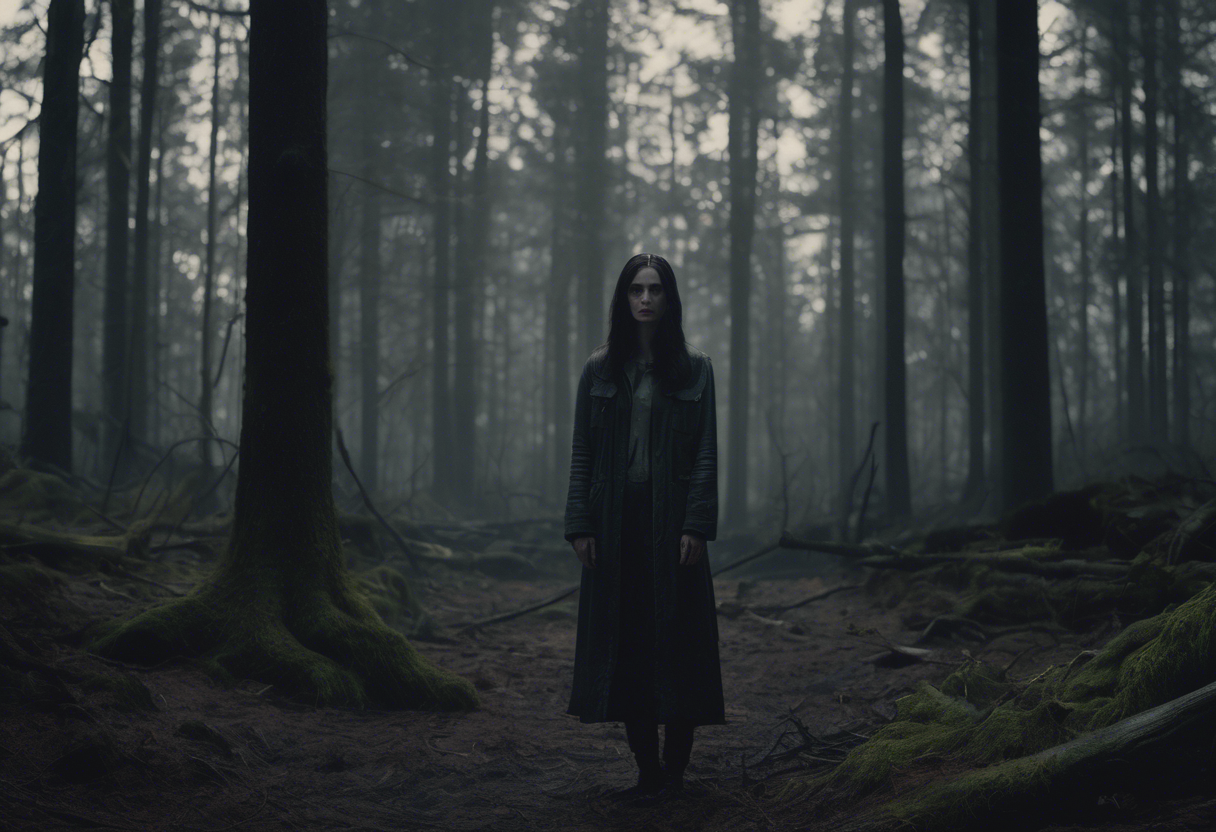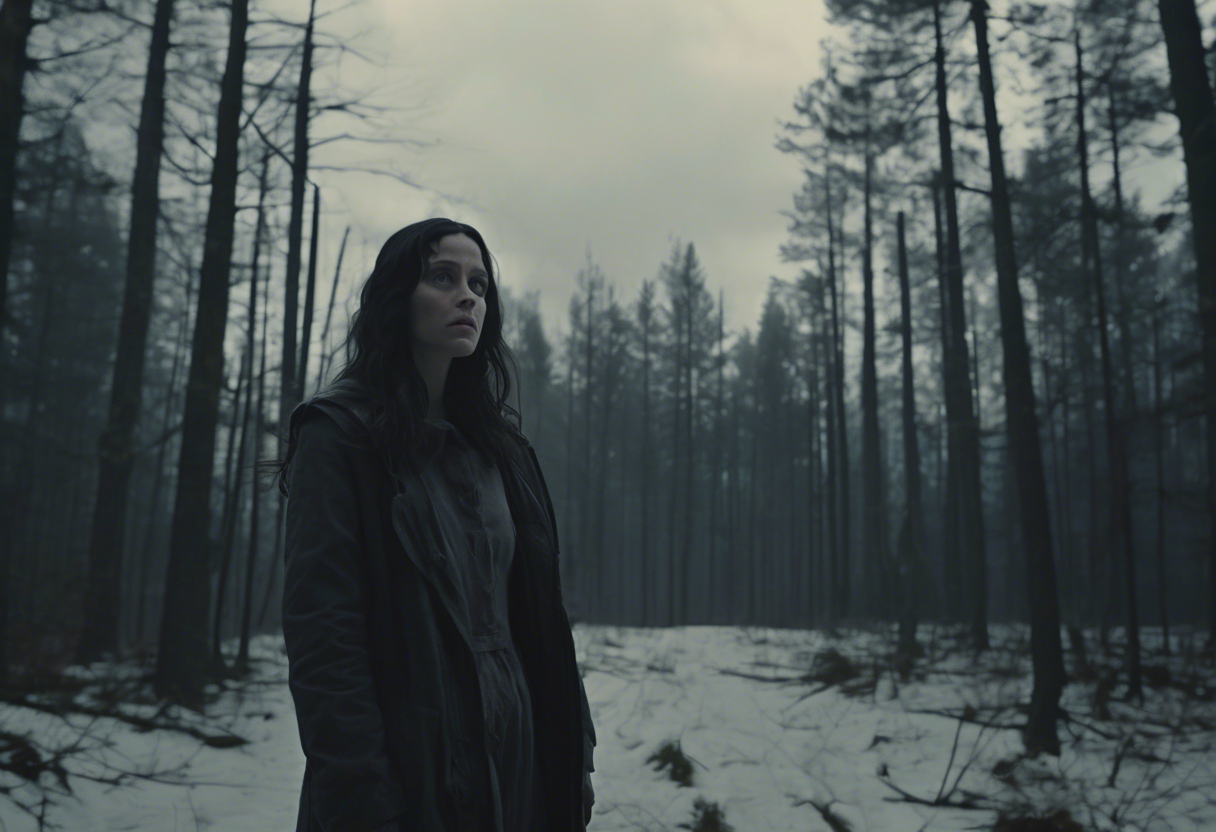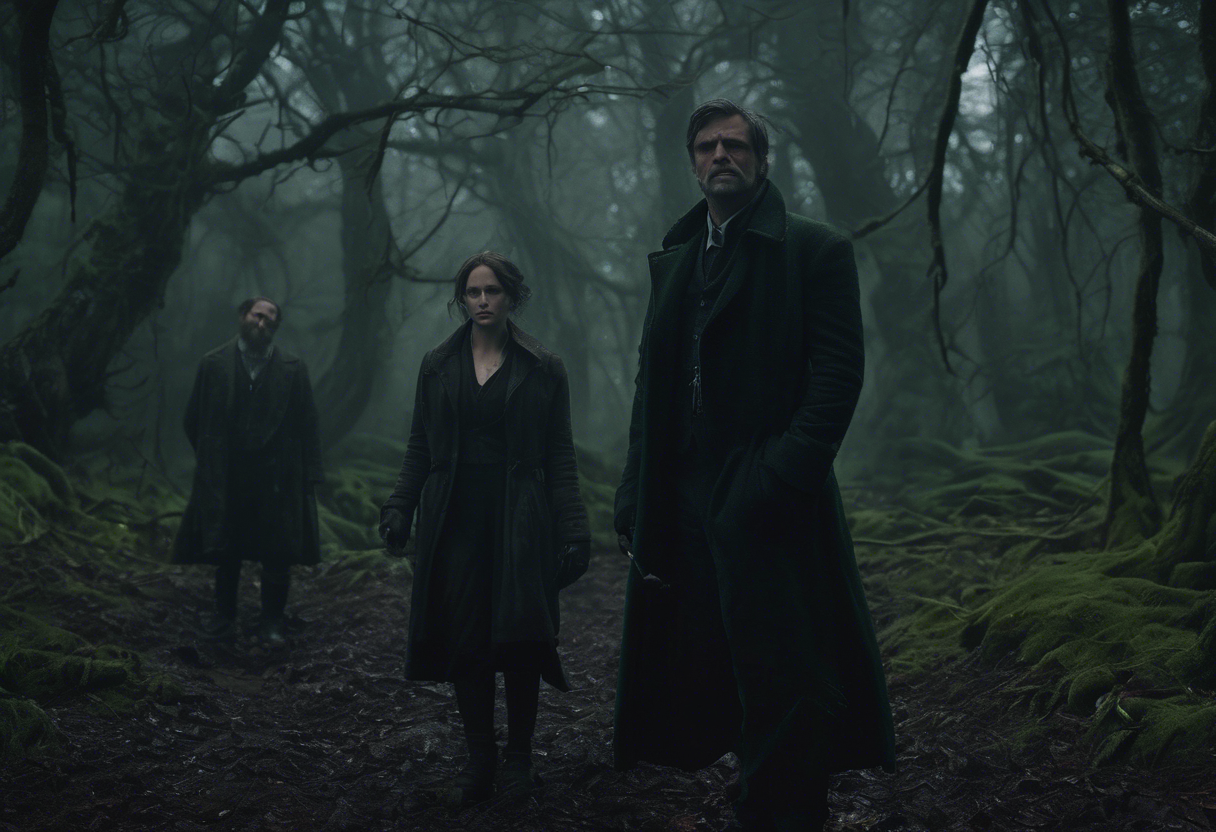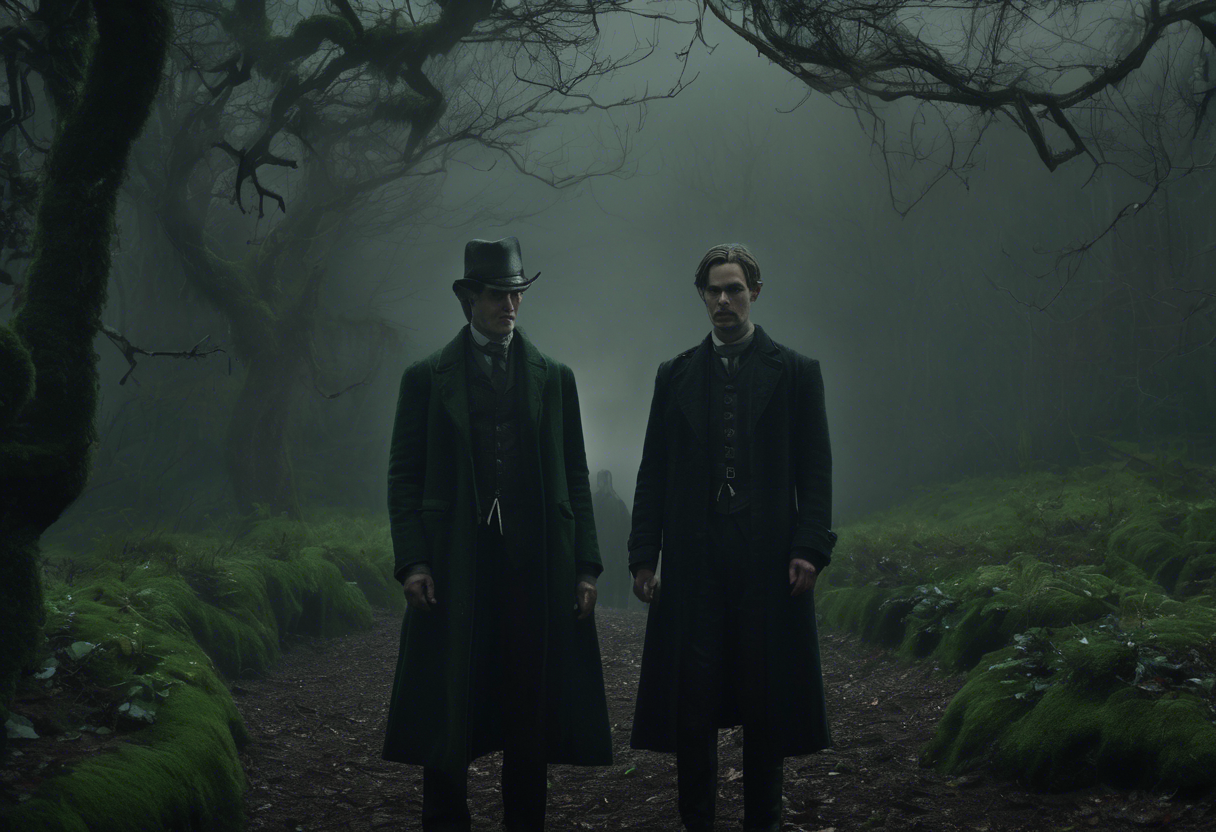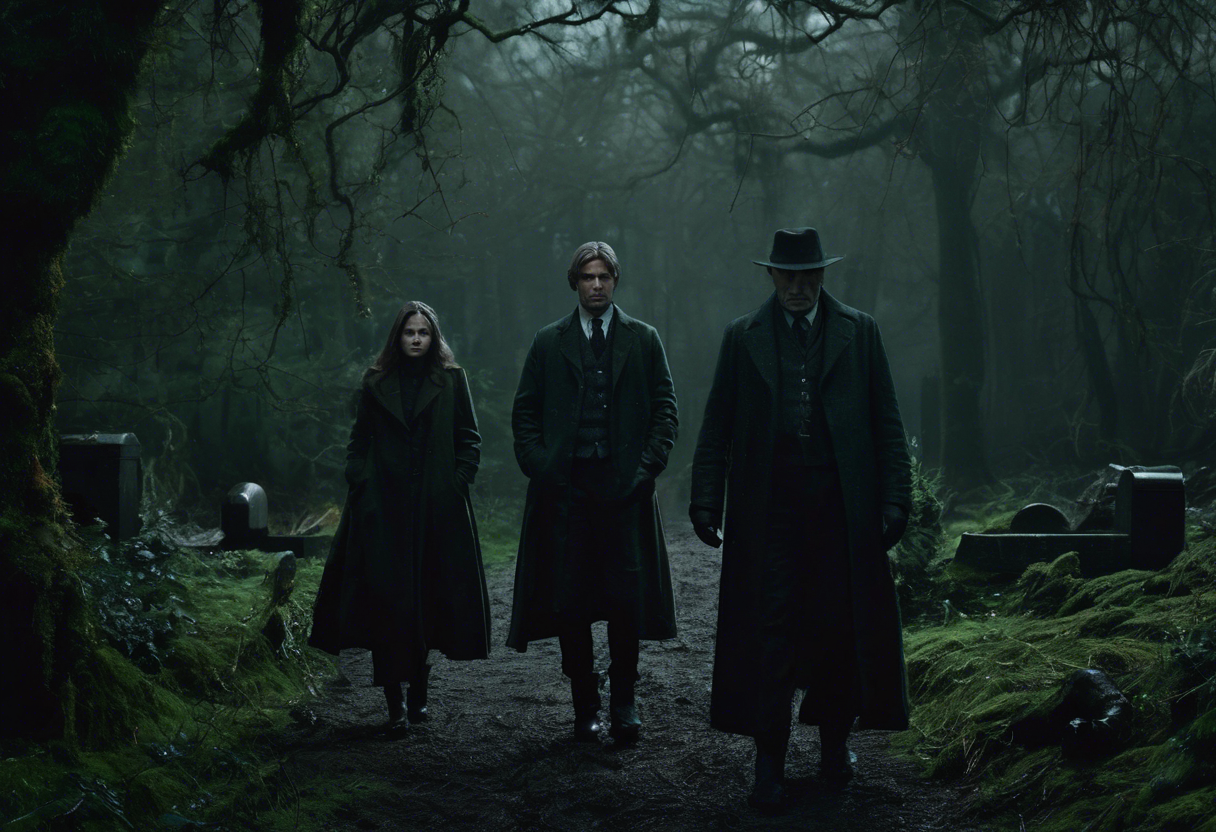Contents
Dark Season 2: Episode 6 – An Endless Cycle
Introduction
"Dark," a Netflix original series, is a German science fiction thriller created by Baran bo Odar and Jantje Friese. The show is renowned for its complex narrative, intricate character relationships, and the exploration of themes such as time travel, free will, and the consequences of human actions. Season 2, Episode 6, titled "An Endless Cycle," is a pivotal episode that delves deep into the heart of the series’ narrative, directed by Baran bo Odar and written by Jantje Friese and Martin Behnke.
"Dark" stands out in its genre due to its meticulous storytelling, which weaves together multiple timelines and character arcs. The series has garnered significant acclaim for its production quality, acting, and the way it challenges viewers to piece together the puzzle of its narrative. This episode, in particular, is notable for its focus on a single time period and its exploration of the central conflicts that drive the series.
Plot Summary
"An Endless Cycle" begins with a voiceover by Adam, a character who has become central to the series’ mystery, as he reflects on the beginnings and endings of the cycle that has trapped the characters of Winden. The episode visually recounts the high points of the series in reverse chronological order, ending at the beginning with Michael Kahnwald’s suicide. This sets the stage for Jonas’s latest attempt to alter the course of events.
Jonas, armed with the knowledge and plan provided by Adam, travels back to June 20, 2019, the day before his father, Michael Kahnwald, commits suicide. Jonas’s mission is to prevent this suicide, believing that by doing so, he can set everything right again and break the cycle of tragedy that has haunted his family and the town of Winden.
Upon his return to 2019, Jonas experiences the morning routine of his younger self in its natural state, a moment that has been anticipated by viewers throughout the series. This segment provides a baseline for normal life in Winden in 2019, contrasting with the distorted timelines and events that have unfolded in previous episodes.
During his time in 2019, Jonas attends the Nielsens’ anniversary party, where he observes key characters like Ulrich and Hannah in their earlier lives. However, his primary focus remains on his father, Michael. Jonas’s interactions with Michael are poignant and revealing; Michael shares his own fears and beliefs about the events that led to his disappearance as a boy and his eventual decision to end his life.
Michael’s narrative is intertwined with the revelation that it was Jonas himself, albeit a different version of him, who led Mikkel (the younger version of Michael) into the caves during the fateful night when he disappeared. This encounter is crucial as it highlights the cyclical nature of the events and the interconnectedness of the characters across different timelines.
The conversation between Jonas and Michael is interrupted by the appearance of older Claudia Tiedemann, who plays a significant role in guiding Jonas through the complexities of time travel and the true nature of his mission. Claudia reveals that Adam’s plan was not to save Michael but to ensure that the cycle continues, and that Jonas must eventually wage a war against his future self, Adam. This revelation underscores the theme of betrayal and the intricate web of time travel that binds the characters.
Despite the emotional weight of his mission, Jonas comes to understand that he cannot change the course of events as he had hoped. He must let his father die, a sacrifice necessary to maintain the balance of the timeline. With this realization, Jonas leads Mikkel to his fate, ensuring that the events that have unfolded will continue as they have.
The episode concludes with Jonas leaving his father to write the letter that will be found later, a letter that encapsulates the despair and hopelessness that define Michael’s existence. This moment is a powerful reflection of the cycle that continues to haunt the characters, a cycle that Jonas is now more deeply entwined in than ever before.
Themes and Symbolism
"An Endless Cycle" delves deeply into several core themes that are central to the series. One of the most prominent themes is the concept of time and its cyclical nature. The episode illustrates how events are interconnected and how attempts to alter the past inevitably lead to the same outcomes. This theme is symbolized through the repeated cycles of birth, death, and rebirth that the characters experience.
Another significant theme is betrayal, which is evident in the relationships between characters and their actions across different timelines. Adam’s manipulation of Jonas and the revelation that Jonas must wage a war against his future self highlight the complex web of trust and deception that permeates the series.
The episode also explores the theme of sacrifice, particularly through Jonas’s realization that he must let his father die to maintain the balance of the timeline. This sacrifice is symbolic of the larger sacrifices that characters must make to ensure the continuation of the cycle, even if it means personal tragedy.
Cultural Impact
"An Endless Cycle" has had a significant impact on audiences and pop culture. The episode’s complex narrative and emotional depth have been widely discussed and analyzed by fans and critics alike. The series as a whole has influenced other media, with its unique approach to storytelling and time travel being referenced in various forms of media.
The episode’s exploration of themes such as time travel, free will, and the consequences of human actions has resonated with viewers, making it a topic of conversation in many circles. The emotional intensity and the moral dilemmas presented in the episode have also been praised for their ability to engage viewers on a deeper level.
Critical Reception
"An Endless Cycle" received widespread critical acclaim upon its release. Critics praised the episode for its cohesive narrative, emotional depth, and the way it tied together various threads from the series. The performance of the actors, particularly Louis Hofmann as Jonas, was also lauded for its intensity and emotional resonance.
Viewers responded positively to the episode, appreciating the clarity it brought to the series’ complex narrative. The emotional impact of the episode was a focal point of discussion, with many praising the show’s ability to evoke strong emotions through its storytelling.
Legacy
"An Endless Cycle" remains a pivotal episode in the "Dark" series, known for its clarity and emotional depth. The episode’s exploration of themes such as time travel, betrayal, and sacrifice continues to influence media and storytelling. Its impact on the series as a whole is significant, as it sets the stage for the final episodes and provides crucial insights into the characters’ motivations and the cyclical nature of their existence.
The episode’s legacy extends beyond the series itself, influencing how other creators approach complex storytelling and time travel narratives. It serves as a benchmark for how to engage audiences with intricate plots and emotional character arcs.
References
- https://www.1ofmystories.com/2019/08/episode-6-immutable-endless-cycle-in.html
- https://metawitches.com/2019/07/29/dark-season-2-episode-6-an-endless-cycle-recap/
- https://dark-netflix.fandom.com/wiki/An_Endless_Cycle
- https://fathersonholygore.com/2019/06/22/dark-season-2-episode-6-an-endless-cycle/
- https://showsnob.com/2019/06/27/netflixs-dark-season-2-episode-6-recap/

